|
0 Comments
Chicago Defender story November 6, 2018
Chicago Defender story May 1, 2019 or full issue of newspaper
Chicago Sun Times 04/15/2019 article Since Empire: The House That John H. Johnson Built was released on November 6, the Rev. Jesse L. Jackson, Sr., who wrote the book's foreword about John H. Johnson, his late mentor and "godfather," has been committed to helping me promote and push the message about the man and his mission. Just recently Rev. Jackson's Rainbow PUSH Coalition invited me during its Reunion Day to not only discuss the book during its live broadcast but to also have a book signing on December 8 following the telecast. The book was most recently featured in Richard Prince's Journal-isms Book Notes: Holiday Offerings. 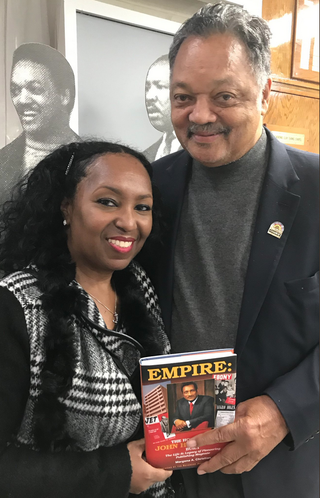 On Sunday, November 11, the Raymond A. Thomas Art Studio hosted the official book launch party for Empire: The House That John H. Johnson Built, five days after its nationwide release. Located in Chicago's "Black Metropolis," also known as the historic Bronzeville neighborhood, the studio is housed in the Bronzeville Artist Lofts, home of Gallery Guichard, the preeminent gallery of art co-owned by Andre Guichard. Raymond A. Thomas designed Empire's cover. He served as art director and creative manager at Johnson Publishing Company--under the direct leadership of its pioneering founder John H. Johnson--for more than two decades where his work appeared on the covers and in the pages of EBONY and JET magazines. Valerie Goodloe, who served as a photographer for EBONY and JET, took pictures for the evening along with Ajuma Muhammad. Check out some recent coverage, including The Chicago Defender, The Journal of Blacks in Higher Education, Richard Prince's Journal-isms, and WVON 1690 Talk of Chicago (Real Talk Real People with Chatdaddy). www.margenachristian.com/book.html EBONY gets up close and personal for its October issue with Sen. Kamala Harris (D-Calif.), Atlanta Mayor Keisha Lance Bottoms and Sen. Cory Book (D-NJ). A tribute to the Queen of Soul Aretha Franklin, which I penned, is also featured. This was taken during a meet and greet, following Aretha Franklin's performance at Ravinia in 2015. She told me how much she liked my hat.
Issa Rae's award-winning HBO series, "Insecure," returns for a third season on Sunday, August 12. Taking front and center on EBONY's September fashion issue, she's hoping to change the way African-American women are viewed in television and in film by presenting multi-dimensional perspectives. In this issue I caught up with Grammy Award-winning performer Bobby Brown and wrote a story about his highly-anticipated two-night BET mini-series, "The Bobby Brown Story," airing September 4 and 5. He also discussed his new life and the importance of having someone in his corner during his darkest moments.
Click to set custom HTML
Bobby and I during media interview at Wintrust Arena in green room. Later that day the Grammy Award-winning singer appeared with RBRM before a sold-out concert at Chicago's Arie Crown Theater. He revealed that he lost 60 lbs. by watching his diet and cooking with his own natural products. Learn more about Bobby Brown Foods. BET's The New Edition Story and The Bobby Brown Story were the network's highest ranking in its history.
 Getting married is easy but staying married is a different story. Mara Brock Akil and her husband, Salim Akil, pulled it off and celebrated 19 years of wedded bliss this year, something a bit of an oddity in show business. Noted for their work with top-rated TV shows such as Being Mary Jane, Black Lightning, The Game, and Girlfriends, the duo's next series, Love Is__, will center around the early stages of their relationship. Catch the OWN dramedy on June 19. Also pick up the June issue of EBONY where I spoke with the show's leads, Will Catlett and Michele Weaver. Nicole Weaver, Michele's mom, was her biggest cheerleader on both Twitter and Instagram. Photo of me with Mara Brock Akil and her husband, Salim Akil, at the 2008 NAACP Image Awards Nominees Luncheon in Los Angeles.
When it comes to high-profile relationships, things aren't what they used to be. It isn't that couples today endure more stress behind closed doors than those who came before. It's just that folks in the spotlight now must deal with more drama thanks to social media having their business in the streets and in the tweets. If you haven't already, check out this cover story I penned where many of these lovebirds have proven that anything worth having is certainly worth fighting for...even if it's each other. 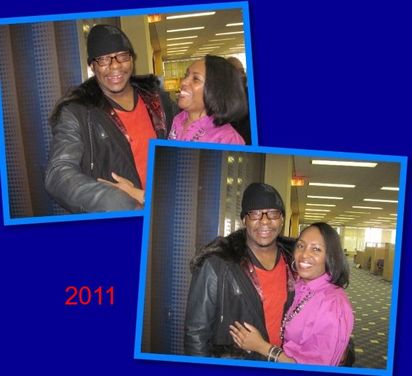 Gospel great Dottie Peoples once sang it best, “He might not come when you want Him but He’s an on-time God.” After 33 years in show business, members of the R & B group New Edition (NE) will finally receive a star on the fabled Hollywood Walk of Fame. The boys from Boston, who grew into men before our very eyes, will receive the 2,600th star at 7080 Hollywood Boulevard on Monday, January 23, at 11:30 a.m. PST, with the event being live streamed exclusively on www.walkoffame.com Devoted fans, known as NE4Lifers, can attest to how they tirelessly petitioned for decades to have the group lauded with the prestigious honor. It should come as no surprise how many NE4Lifers made the long trek to be on hand at the ceremony, a prelude to the three-night BET miniseries, beginning January 24 through January 26. Social media has been buzzing with everyone from celebs to common folk eager to witness NE’s tumultuous and triumphant journey from kid stars to seasoned vets. I’ve had a few NE4Lifers to wonder if I will be in attendance to celebrate the festivities in Los Angeles. While I won’t be there in body, I have always been with these guys through the written word. Throughout the years I was on the battlefield, a foot soldier, in helping to be instrumental in sharing their story on the pages of Jet and EBONY magazines. If I was still there, I would have fought for them to be on the cover, to be honored during the Power 100 and to headline the evening! It would have been a win-win for everyone. But everything happens for a reason and, truth be told, it wasn’t always easy going to battle for NE. Their delivery as performers was never questioned once they hit the stage. The problem came when making the editorial pitches because I could never quite explain what kept them from getting to the stage and staying there with consistency. During some cover stories, though they appeared picture perfect, things proved otherwise because everyone didn’t always agree to being interviewed. Thankfully, there’s no more wondering. Our questions will soon be answered, regarding any hills and valleys we never knew about. When I last interviewed them for a 2013 Retrospective piece in EBONY, it was the first time that all six members agreed to speak. The movie deal was still being worked out because Bobby had some trepidations about agreeing to the project. I’ll never forget him telling me how he didn’t feel like the New Edition story was complete because they weren’t on the top. Bobby said, “We’re still working on being able to end on top. We’re giving a hell of a good run of it. We’re looking forward to writing the ending of our legacy instead of it having a tragic ending.” Tomorrow isn't promised to anyone and with so many high-profile people suddenly dying, it is nice to see that New Edition realizes the value and beauty in cherishing this moment while each member is above ground to share and celebrate the story. This year some of the fellas will be pushing 50 years old and no matter what any one of them has been through, they remain firmly rooted in an industry where it isn’t unusual for child stars to be toppled to the ground, chewed up, spit out and forgotten about. Aside from the Jacksons, no other group has made the transition from boys to men, creating a stylistic blueprint with some considerable measures of success emulated by others. NE has paid their dues for paving the way, because like most pioneers, they weren't always given the proper credit they deserved. Yes, I'm more than certain that the miniseries will show how badly New Edition has been bruised, but it will also show how they were never broken beyond repair no matter how painful the path. Ronnie, Bobby, Ricky, Mike, Ralph and Johnny, with every little step, with every NE heartbreak, you have shown true power. That's staying power and that's how true legends continue to write history. God's timing is always perfect. Congrats! DocM.A.C. signing off. Keep the faith and always trust the process. #OnwardUpward [Above] The fellas conducted the 2004 cover story interview immediately following their performance as headliners at the Taste of Chicago where Mayor Richard M. Daley acknowledged the group's stellar career by proclaiming June 29 as New Edition Day. They were tired because they just returned from out of the country after filming the video for Hot 2 Nite and had to hit the ground running with a major outdoor concert. Like always, they left the audience begging for more because New Edition never lets anyone see them sweat. Following the interview, Ralph, Ricky and Ronnie stayed in the lobby and talked with me. Ralph and Ricky were clearly excited about their upcoming double wedding. Then an Associate Editor for Jet, I told them how I also handled the Love & Happiness marriage announcements. "When you get married, be sure to send me the picture so that I can put it in the magazine," I told them. The fellas agreed and made good on their promise. [Below] Not only did the wedding photo end up in the November 29, 2004 issue of Jet, but it was also selected by EBONY, the sister publication, for one of the Top Weddings of 2005 in the annual February love edition. [Below] When Michael Bivins became an NBA correspondent for TNT, I wrote a profile for the June 9, 2008 issue. And long before Unsung and Oprah's Where Are They Now?, Jet was the place to go and find out Where Are They Now? Bivins' popular kid group Another Bad Creation (ABC) was featured in the same edition. Be sure to check out the picture on page 56. Let's just say that Mike Biv put a hurting on basketball legend Michael Jordan during a winning game of pool. Look at that face! [Below] The group was celebrating yet another milestone year in 2008 and was being recognized for its accomplishments with the ASCAP Golden Note Award in Los Angeles. They agreed to a cover story and even a photo shoot with Valerie Goodloe on the day of receiving the prestigious honor. Though it was the first time all six members were on the cover, Ralph and Bobby did not interview for the story. Johnny and Bell Biv DeVoe (BBD), ever the anchors, forever holding things down, spoke on behalf of the group. 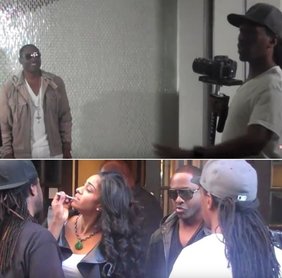 Six Degrees of Separation in St. Louis: Video director Dana Christian (r) goes over a scene with Johnny Gill for a music video from his 2011 Still Winning CD. St. Louis singer Sineta Roker, a former “American Idol” contestant, appeared as Gill’s leading lady in the trilogy of videos, directed by my brother. Roker is the cousin of Today Show co-anchor Al Roker and award-winning rocker/actor Lenny Kravitz. Dana said, "I ended up directing three Johnny Gill music videos, which were part of a trilogy: Just The Way You Are, It Would Be You and Second Place. It was two sample songs and one full-length. I decided to tell a story and connect all three.” [Below] The last time that I wrote a major story about New Edition was four years ago for the February 2013 EBONY Retrospective. This also marked a first because all six members agreed to be interviewed. There was still some uncertainties about the movie being made but a few willingly discussed it anyway, including Bobby, who admitted to having had concerns because he wanted their careers to be on top before he signed on to do the project. Before our interview ended, he also told me, "We've been through some things where we were really trying to hurt each other physically. Times were rough in any one of our lives, but we have all been able to come together and stand up for each other. When you lose the ego and put it in your back pocket, when you walk in the door so the group can be the best, that's what is going to happen. This is a business. I'm in business with five of my greatest friends, and we know how to work it." 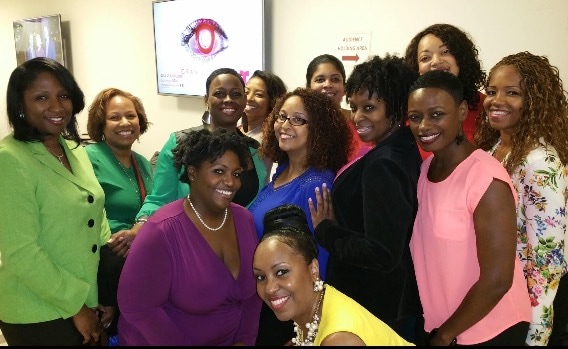 Enjoying time before New Edition's June 2016 taping on the Steve Harvey Show in Chicago. Some NE4Lifers include Dr. Renee Matthews (Ask Dr. Renee) and the twins, Kamita and Katrina Terrell of TwinKonnections. That's me at the bottom, wearing my hair like Xernona Clayton. [Below] I am now a college professor at the University of Illinois at Chicago (UIC) where one of the city's top entertainment venues is the UIC Pavilion. The fellas had a sold-out concert planned but it was canceled due to a terrible flooding in the facility. Fans left pissed off and hurt! We suffered an NE heartbreak that night, because we COULD NOT STAND THE RAIN and we can't wait for their return. Best Known As Radio Raheem in Spike Lee's 'Do the Right Thing,' Nunn Once Revealed Role As Jazz Musician In Lee's 'Mo Better Blues' Made His Heart Sing Most 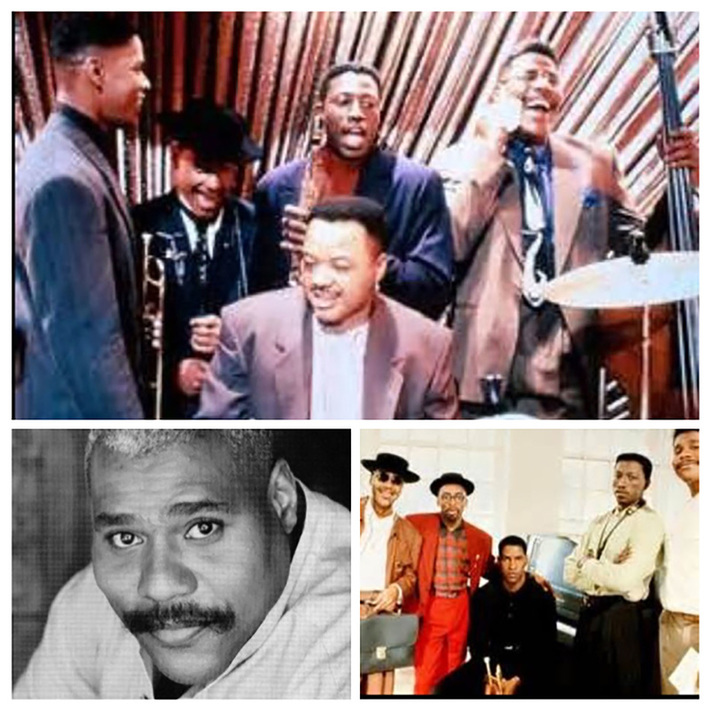 The 1990 film Mo Better Blues also co-starred filmmaker Spike Lee along with Denzel Washington, Giancarlo Esposito, Wesley Snipes and Jeff "Tain" Watts. When I learned about Bill Nunn's death from an Instagram post by filmmaker Spike Lee, I was hurt. Then I immediately thought about the conversation I had with Nunn and Lee six years earlier. It was the 20th anniversary of Lee's jazz film Mo Better Blues where Nunn played Bottom Hammer, a bass player. Everyone agrees that Nunn's portrayal of Radio Raheem was easy to remember in Lee’s 1989 film Do the Right Thing. The role won him notoriety as the young man whose death caused by a police chokehold sets off a riot. Strolling through his neighborhood, carrying a boombox that blasted Public Enemy's song Fight The Power, Radio Raheem wore gold rings on both hands, one bearing the word love and the other hate. On the day of that interview, I couldn't help but recall how Nunn was quietly, away from the spotlight, fighting the power in a different way. He mentioned his battle with cancer and asked that I not reveal it in the Mo Better Blues piece that I was writing. The Morehouse College grad wanted to talk, to laugh and to simply look back at that moment in 1990. Nunn spoke with pride as he discussed Lee, the kid at Morehouse who told him he wanted to become a filmmaker, succeeded against the odds to do so and became the keeper of his Morehouse brothers in an industry where Hollywood wasn't checking for Black folks. A teacher at heart, the Pittsburgh native explained how his health challenge allowed him to be still enough to bless aspiring actors through the Bill Nunn Theatre Outreach Project (BNTOP), which provides a platform for underserved Pittsburgh public school students to gain access to theatre arts and work with seasoned veterans within the field. One of the core components of the BNTOP is presenting the Annual August Wilson Monologue Competition where high school students perform monologues from Wilson's 10-play Century Cycle. Radio Raheem used music to fight the power; Bottom Hammer showed it was all about that bass. Bill Nunn brought the noise--a resounding melody--to both characters by doing the right thing. Here's that full interview. Margena A. Christian: It has been 20 years since the making of Mo’ Better Blues. What are your thoughts? Bill Nunn: Oh, God, is that scary! Christian: Can you believe it's been that long? Nunn: No, I can't. I really can't. I thought I was old then. Christian: This movie was nearly fresh off the heels of your performance as Radio Raheem in 1989's Do the Right Thing and then you played Bottom Hammer, a bass player, in Mo Better Blues. How did you prepare for your musician character? Nunn: It was really one of the greatest experiences of my career, because Spike didn't want us to be looking bogus, so we all had teachers. Spike set me up with a good friend of his dad’s, who is also a bass player. He's one of the well-known cats in New York named Michael Fleming was also in the all bass orchestra. He’s a great bass player from New York. Spike got me together with Michael. We started maybe a month or two before shooting the film and then he stayed with me during the whole shoot. So, I was actually learning how to play the bass at the same time that we were making the movie, and it was incredible, because we also had like a small budget where we could go almost nightly and hear some of the best music in the city. It was an incredible. Really for me, it was one of the most incredible experiences of my career. It was just awesome. Christian: During your scenes, were you actually playing? Nunn: No, but I was in the area. Christian: You were improvising? You knew how to do the movements, but the sound was actually somebody else? Nunn: If you were a bass player, and you were looking at my hands and listening to the music, you would say, ‘Well, he could be playing. He's in the right area.’ But, actually, I wasn’t playing the bass for that film. No way. That was Branford Marsalis’ bass player, and I can't think of his name right now. He used to play off a lot because he was so good. It was hard to try to keep up with him. Christian: I found old production notes. They revealed that you learned to play so well, or tried so hard, that you callused your hands. Is this true? Nunn: I blistered my hands. They were bleeding, so I disappeared from Michael for a couple days and he told on me. Spike was like, ‘What's going on?’ I said, ‘Man, my hands are bleeding. I've got to take a break.’ He said, ‘Yeah, you take a break. You know, November so and so.’ That was like the day after we’re done shooting. Yeah, that was quite a lot on the fingers. Until you develop that callus, you develop blisters, sometimes if you have to go through a lot. There was a lot of playing involved. So that’s a true story. Not calluses on my hands, but I had blisters. Calluses, some, after the blisters. You’ve got to work through the blisters to get to the calluses. I got through them and I got something. You know I was able to just keep playing. I was in an incredible amount of pain. That gave me a break from Michael Fleming. He was really tough. Michael thought the movie was called Bill Nunn: A Man and His Bass. Christian: You said you guys were given a small budget to hit the jazz clubs. I understand that from a couple people, you all thought you were a real jazz trio at one point and tried to go up and play? Nunn: Well, we could jam a little bit. We would go on stage and stuff, fumbling around. As long as we had Jeff “Tain” Watts, we could really play. It would start sounding half way right. Yeah, it got really serious. Christian: You thought you guys sounded halfway decent? Nunn: Well, in a kind of garage way. You’ve got Jeff “Tain” watching and playing with you. You can make it sound good. As long as we had Jeff, we were in the ballpark. Christian: Whose idea was it to go up and actually play at the clubs? Nunn: We didn't. We didn't go out to any clubs and do that. We’d be filming the scenes in the clubs. Just between takes we’d be standing up there and we’d just start jamming around. All the audience would be there. It was all the extras from the films, and they would just be watching us. We’d be going for it. We were trippin! We were all well dressed, and we looked the part. Christian: Tell me about your character. I know Spike gave you guys a creative license to kind of do what you wanted. What did you bring to your role? Nunn: Well, I kind of always had that bottom. You know, the rhythm section of the music. So, I was really, really happy and flattered to be the bass player. I used to play percussion when I was younger and I would always play the bottom section because I was pretty consistent. I could get a good strong beat and keep it. I felt like I was that guy who probably could have been a good bass player if I had gone in that direction. Michael Fleming told me that I was able. I probably could have played a gig by the time we were done shooting the movie, but I was just so burned out. I never really picked up…well, actually, I do sometimes pick up the bass around Christmas time. I might do a party or whatever. I’ll go pull out the bass, because I still have it. Christian: Wow! You play for the holidays? Nunn: Yeah, get a little jazz going. Christian: Now what was going on in your life at the time that the film was being made? I know Spike was on an aggressive schedule where he was doing a movie a year. Like I said, if I'm correct, this was fresh off the heels of your powerful performance in Do the Right Thing. What was happening in your life at the time when you were making Mo Better Blues? Nunn: I was still a young father. I mean, my daughter was maybe around 6 years old. We had finished doing Do The Right Thing. It opened that summer, and I was in New York for the opening of it. At that time, I used to stay up in Harlem, in Sam Jackson and LaTanya’s basement apartment, because I still lived in Atlanta. When I came to New York, I would stay with them. So right after Do The Right Thing opened, I pretty much stayed in New York and started bass lessons. That was like just a really great time for me. I was lucky to be able to go from film to film like that. Christian: There’s that Morehouse College connection. You guys are brothers until the end. There’s you, Samuel L. Jackson and Spike, but you guys were a little older than Spike, right? Nunn: Yeah, but it really blurs because they're – I mean, when you're in the art department, the drama department, you find yourself still hanging around after you're done and you're working with the kids that are coming up. Like, Kenny Leon came up behind us and so we all did theatre together. Spike was a big fan of the theatre scene back then in Atlanta. All of the theater seen came out of the Atlanta University (AU) center. And, Spike would hang around back then and come to a lot of shows and plays we did. I got to know him at that time. He would say he's going to become a filmmaker, and I was saying to myself, ‘Yeah, right,’ but out loud, I would be really encouraging to him. I'm glad I was because he really pulled it off, didn't he? Christian: Spike certainly did in a major way! What made you think ‘Yeah, right’ when he said, ‘I'm going to be a filmmaker’? Nunn: Back in those days, it was so different than it is now. I mean Spike was really a pioneer. There weren't any Black filmmakers around. So, do you really think you're going to be the guy? I was at a loss. I didn't know the guy Spike really was. I didn't know the kind of persistence he had. I didn't really know about Spike until I read his book, Gotta Have It: Inside Guerilla Filmmaking. Reading that really showed me the determination it took him to get his first film, She’s Gotta Have It, done. I recommend that to any young filmmaker who wants to know what it takes, it’s a really, really rough process and for him it had to be triple rough because he was Black. It wasn’t like it was 20 years ago. It is a different time now. Christian: What did you remember during the making of this film? Comedian/actor Robin Harris died. Do you recall doing scenes and seeing him on the set? Nunn: Absolutely. Yes. Christian: What are your memories about Robin? Nunn: I met Robin doing the film Do the Right Thing. We were pretty good buddies then, and I say Robin was kind of like…I thought he was a great guy. He was incredibly funny, and he never really talked about me, luckily. He was like Matt Dillon, and he would have a lot of these young comics come up and challenge him. He was just knocking them down like a gunslinger! It was incredible. He was the undisputed king. I used to love to just sit back and watch. I liked when he would do his little bits of “Being Butterbean” up on stage. Spike would basically turn on the camera and Robin would be Robin. One day me and Denzel were standing in the back, and I'm kind of like standing back where I can't be seen. Denzel steps out and I'm like, ‘Man, you better not step out there or Robin is going to see you.’ Know what I mean? Denzel said, ‘I don't care,’ and he stepped out there. Robin did about 15 minutes on his ass. I was behind the post. He was like, ‘Look at you, man! Your head looks like a question mark.’ Yeah, he just did about 15 on him. Christian: I'd heard Spike mention that Mo Better Blues was his answer to Clint Eastwood’s Bird. It was a modern version of jazz and showing how people should live or should play, and just showing the reality for a jazz musician. What would you say this movie did for this particular genre? Nunn: Most of the guys that we hung out with were teachers and kind of old school. We learned about the kind of code among jazz musicians. We learned how they carried themselves, how they dressed, how they played and how they lived their lives. We were, I think, the kind of jazz musicians, at least our characters were, that more or less represented the old school. We were kind of proud to display that for the audience. And, once again, it seems to be one of those films that is a love story, too. There's a lot of other things going on, apart from just music. It's another one of those films that seems to really just hold up. Twenty years later, you can look at the film, and almost other than the haircuts, it's pretty much, it could be today. It just holds up very well. Christian: Do you keep in touch with any of the people who were in the movie? Nunn: Yes, I sure do. Christian: Who are some you keep in touch with? Nunn: Spike, Sam and Giancarlo [Esposito]. I talk to Denzel [Washington] once in a while. Wesley [Snipes], I haven't seen in a while, but I mean, we’re all really cool. I'd like to see them more but I don't. It’s one of those things that we really became pretty close on that film. When we see each other, we kind of pick it up where we left it off. Most of those guys are pretty busy which is a good thing. Christian: Anything else you'd like to add that you want people to know about the making of Mo’ Better Blues? Any trivia or tidbits that people would get a kick out of learning? Nunn: People often ask me, ‘What is your favorite film?’ That’s a hard question to say what is my favorite film that I worked on. But, the most fun I ever had was probably this film. I mean, it was an incredible experience to me to kind of get to live the life of a jazz man for a few months. I thought it was just an incredible experience and I really had a ball on that film. Above all, and I usually enjoy all the films that I do, but I put that one really up there. It was an experience of an actor, getting to live a different lifestyle. They’ve got some beautiful photography from that movie, too. Spike really did some fashion takes in that one. Christian: What are you working on now? Nunn: Well, right now I'm in my home town, Pittsburgh. Three years ago I started up the Bill Nunn Theatre Outreach Project. I'm here working with young people. The first semester I worked with young elementary kids and the next semester I worked with high school kids. That’s the big thing I've been working on. I try to do at least a film a year, but I also, I'm kind of dealing with some health issues right now, which kind of have me stuck, for like medical reasons. I'm in treatment right now for cancer. I kind of have to sit tight while I'm dealing with that. But, the beauty of it is, it really gave me the chance to start this project and it kind of just has taken off and has a life of its own. It’s been wonderful working with these young people and I hope that I can do that from now on. That kind of project, I want to continue it. It's like my hobby. It's really been a great experience. Christian: Wonderful. Thank you so much and take care. Nunn: Thank you. Nice talking to you. Christian: Likewise. Nunn: Alrighty, bye. DocM.A.C. signing off. Keep the faith and always trust the process. #OnwardUpward Be sure to check out the latest issue of EBONY magazine. The Special Collectors Edition includes tribute stories by the Rev. Jesse Jackson, Dr. Michael Eric Dyson, and actors Don Cheadle and Nate Parker. Ali's daughter, Laila, who followed in her dad's famous footsteps as a boxer, also shares her favorite memories in the August issue. I contributed two articles in this commemorative package as well, while Dr. Marc Lamont Hill served as guest editor. DocM.A.C. signing off. Keep the faith and always trust the process. #OnwardUpward “It’s lack of faith that makes people afraid of meeting challenges and I believe in myself.” 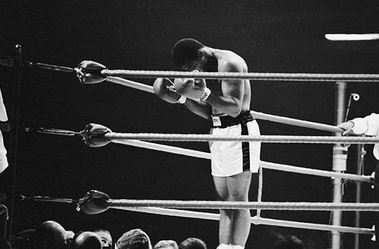 They called him the G.O.A.T. for good reason. His epic boxing bouts are etched in history, yet one must never forget how many of Ali’s greatest fights seemed to inevitably take place outside of the ring. A devout Muslim, his world heavyweight title was taken away in 1967 and he was suspended from boxing for three and a half years for refusing to be inducted into the U.S. Army because of his religious beliefs. When Ali returned to the ring in 1974, the odds seemed stacked against the 32-year-old, deemed too old then, as he prepared to battle the 25-year-old reigning champ George Foreman for what would become the Rumble in the Jungle. Most believed Ali was ill prepared to face Foreman, a fellow Olympic gold medalist like himself and man who had 40 wins with 37 knockouts! But Ali believed in himself and that’s where it counted most. In fact, after his win, he once said, “Some were asking, ‘Can Allah save Ali?’ What do you mean can Allah save Ali? Allah can save nations. They were putting God on the spot. It would have been terrible if I had got myself beat.” And in 2014, when I wrote a story in honor of the 40th anniversary of the historic match in Africa, Foreman reminded me about the measure of a man that Ali truly was. His diagnosis of Parkinson’s disease in 1984 placed a spotlight on the neurodegenerative disorder, showcasing that he might have been down physically but he was never out spiritually. Each day of his life was a new battle but his faith carried him until the very end of his 74 years of life. What more could one ask of the Greatest Of All Time. The Ultimate Test Of Faith |
Archives
June 2023
DocM.A.C.'s Musings
I am Dr. Margena A. Christian aka DocM.A.C. Some folks feel my way with words, so I thought I would drop a few random "soul lessons" with a little bit of this and a whole lot of that. Keep the faith and always trust the process. Categories |
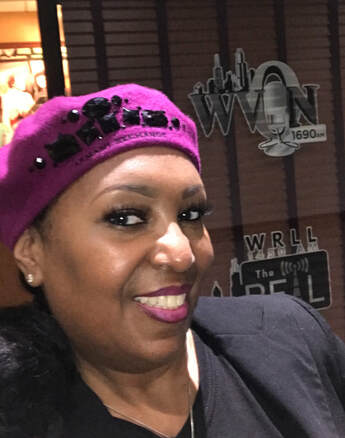
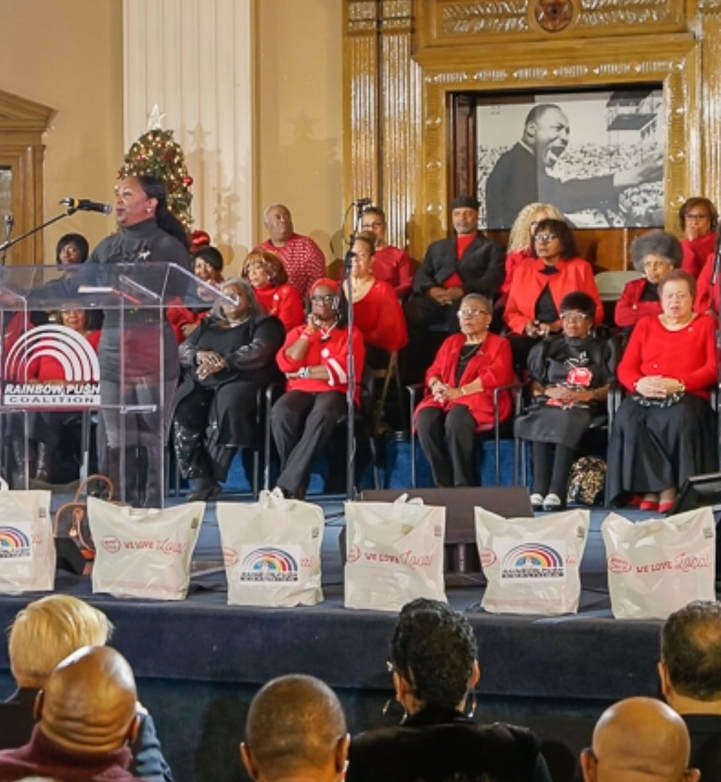
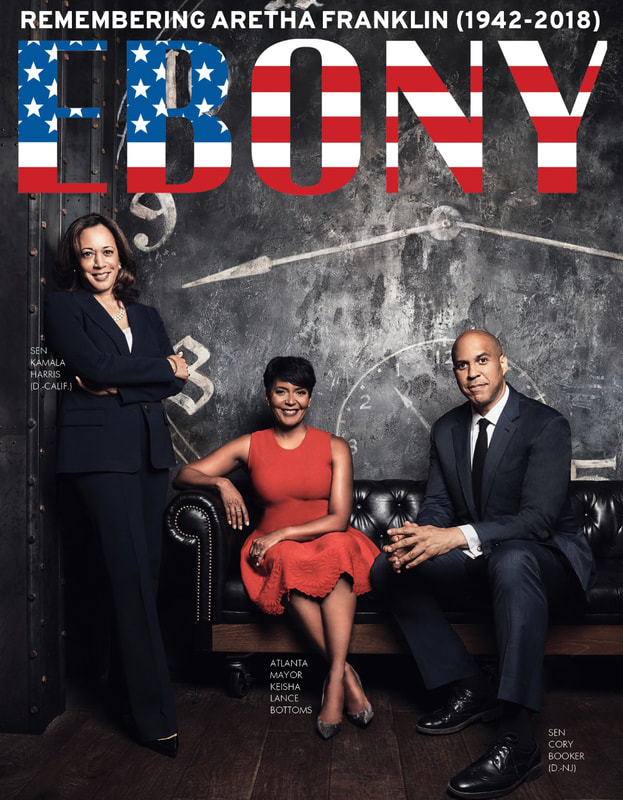
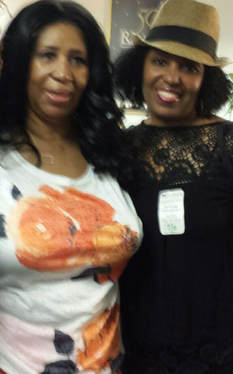
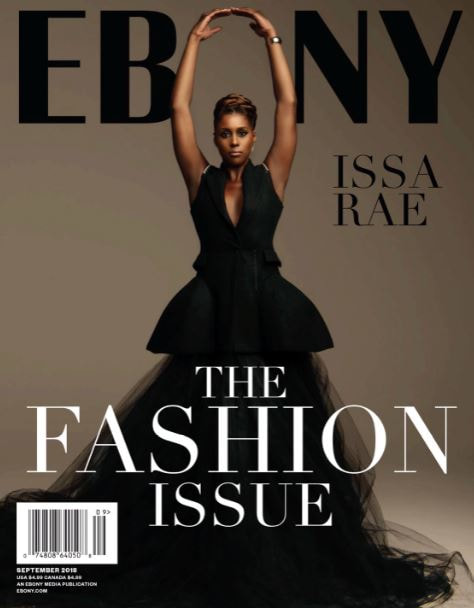
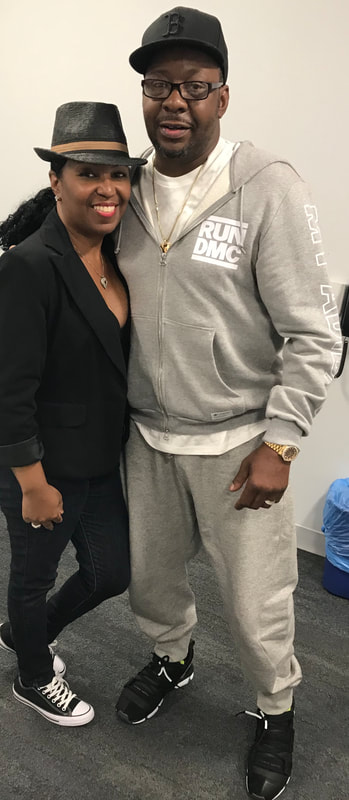
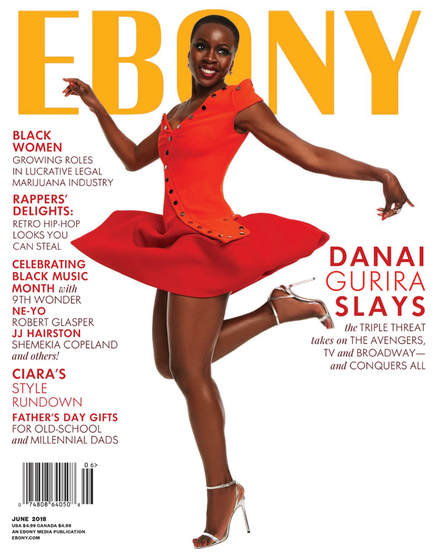
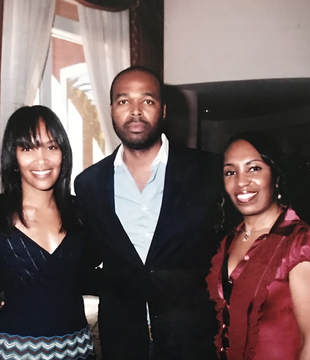
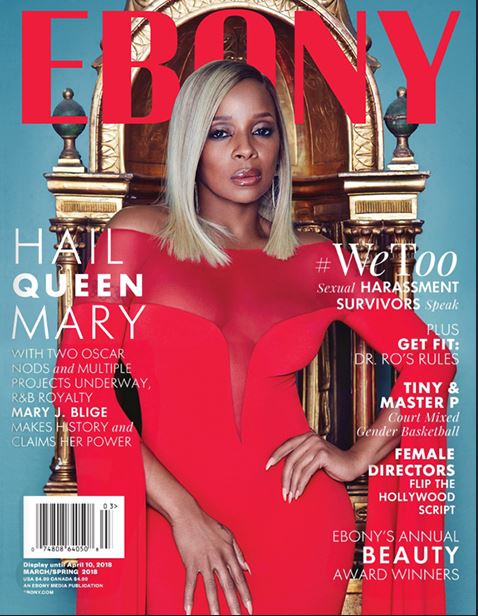
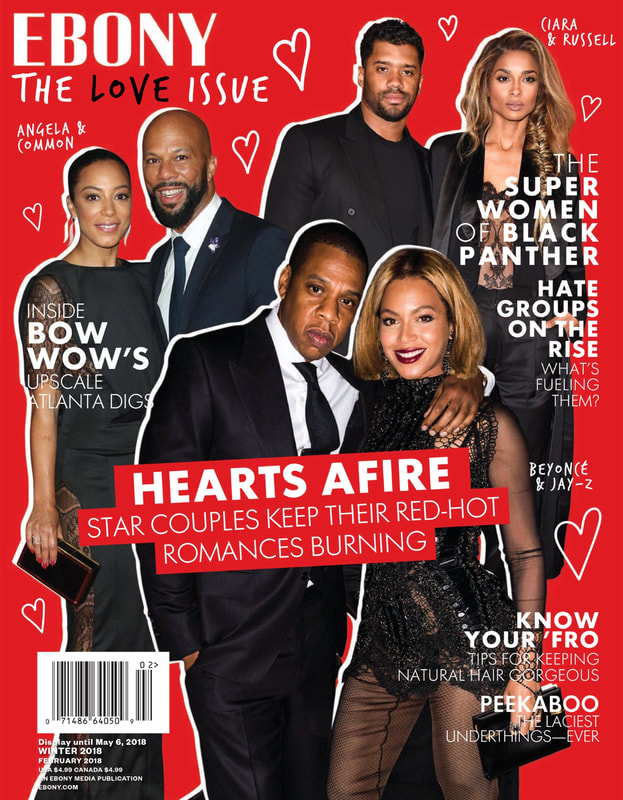
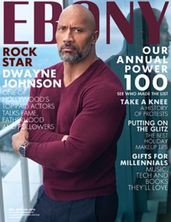



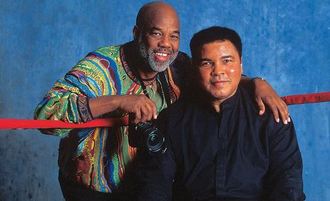

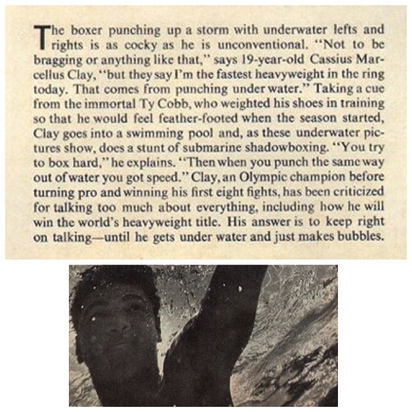
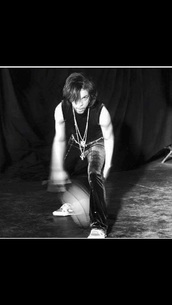
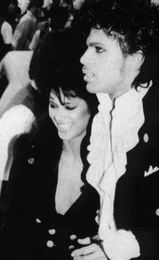
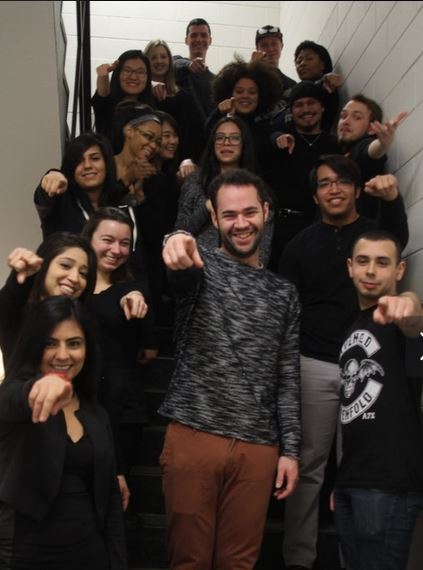
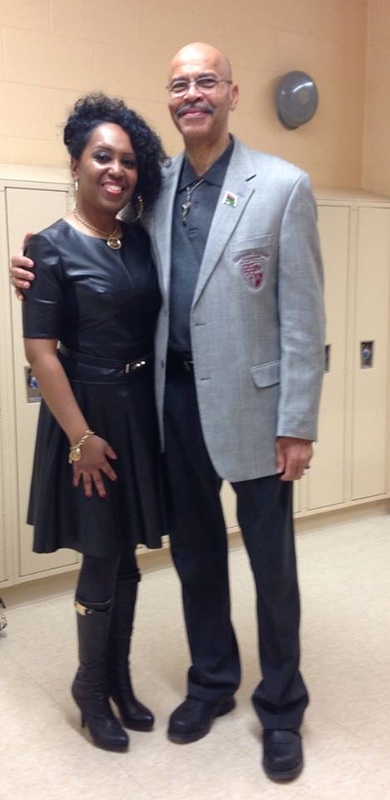

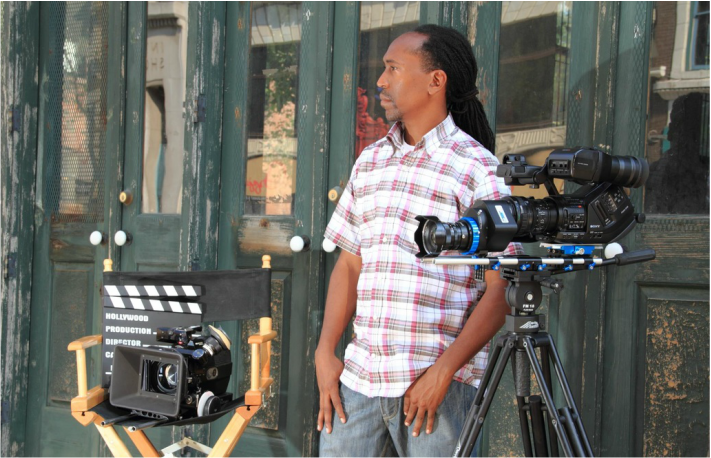
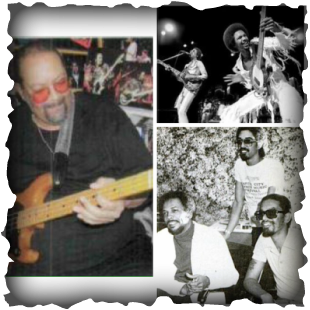
 RSS Feed
RSS Feed